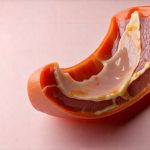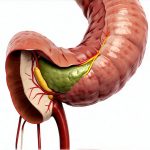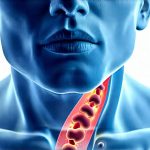Gastroesophageal reflux disease (GERD) is a surprisingly common condition, affecting millions worldwide. It’s more than just occasional heartburn; it’s a chronic digestive disease where stomach acid frequently flows back into the esophagus, irritating its lining. This can lead to a variety of uncomfortable symptoms, ranging from mild discomfort to significant pain and even complications if left unmanaged. While many associate GERD with typical symptoms like heartburn and regurgitation, there’s a less discussed but equally impactful issue for those living with the condition: difficulty swallowing pills, a phenomenon known as dysphagia.
This struggle with pill-swallowing – often termed ‘pill refusal’ – isn’t directly caused by GERD itself, but it is very frequently exacerbated by it. The inflammation and potential structural changes in the esophagus resulting from chronic acid exposure can make the simple act of taking medication a stressful ordeal. It creates a frustrating paradox: needing to take medications to manage GERD, but having difficulty actually taking those medications. This article will delve into the intricate relationship between gerd and swallowing, exploring the underlying reasons, offering practical strategies for improvement, and highlighting when it’s crucial to seek medical advice. Understanding this connection is key for improving quality of life and ensuring effective treatment adherence.
The Connection Between GERD and Dysphagia
The link between GERD and difficulty swallowing pills isn’t always straightforward, but several factors contribute to its prevalence in individuals with the condition. Primarily, chronic acid exposure can lead to esophagitis, inflammation of the esophageal lining. This inflammation causes narrowing of the esophagus, making it physically harder for anything – including pills – to pass through comfortably. Over time, persistent esophagitis may even result in strictures—narrowings caused by scar tissue formation—further complicating pill swallowing. It’s important to remember that dysphagia has many potential causes beyond GERD, so identifying the root cause is essential.
Beyond structural changes, GERD can also affect the motility of the esophagus – its ability to efficiently move food and pills down towards the stomach. Acid reflux can disrupt these normal muscle contractions, leading to a feeling of something being stuck or requiring extra effort to swallow. This disruption isn’t always apparent when swallowing food but often becomes noticeable with the relatively dry and sometimes oddly shaped texture of pills. The psychological component shouldn’t be underestimated either; anxiety about experiencing heartburn or regurgitation during or after swallowing can further exacerbate the difficulty, creating a vicious cycle.
Finally, some medications used to treat GERD—like certain proton pump inhibitors (PPIs)—can themselves have side effects that contribute to dysphagia in rare cases. While these are generally safe and effective when prescribed appropriately, it’s important to be aware of potential interactions or adverse effects and discuss them with your doctor. The interaction between the disease itself, its treatment, and the psychological impact creates a complex scenario for individuals experiencing difficulty swallowing pills. Understanding gerd with esophagitis can help you navigate your treatment options.
Strategies to Ease Pill Swallowing
Fortunately, many techniques can help mitigate pill-swallowing difficulties, even when GERD is involved. These strategies aim to address both the physical and psychological aspects of the challenge. One common approach involves altering the consistency or form of the medication if possible. Crushing a pill (if approved by your doctor or pharmacist), mixing it with applesauce or yogurt, or switching to liquid formulations can significantly ease the process. It’s crucial not to crush pills without first confirming it won’t affect their effectiveness—some medications are designed for slow release and crushing alters how they work.
Another helpful technique is to focus on proper swallowing mechanics. – Taking a sip of water immediately before and after the pill helps lubricate the esophagus and promotes easier passage. – Tilting your head forward slightly during swallowing can also be beneficial, as it uses gravity to aid movement. – Visualizing a smooth path down the esophagus can reduce anxiety and improve confidence.
Furthermore, timing is important. Taking pills with food—particularly softer foods—can make them easier to swallow. However, certain GERD medications are more effective when taken on an empty stomach, so always follow your doctor’s instructions regarding timing. Ultimately, finding what works best for you may require some experimentation and patience, but a combination of these strategies can often make a significant difference. Consider exploring dinner meals that are easier to digest alongside medication.
Addressing the Root Cause: Managing GERD Symptoms
While pill-swallowing techniques offer immediate relief, addressing the underlying GERD is paramount. This begins with lifestyle modifications that help reduce acid reflux. These include: – Elevating the head of your bed by 6-8 inches. – Avoiding trigger foods like caffeine, alcohol, chocolate, and spicy or fatty foods. – Losing weight if you are overweight or obese. – Quitting smoking. – Eating smaller, more frequent meals instead of large ones.
Medication plays a crucial role in managing GERD symptoms as well. Antacids provide quick but temporary relief by neutralizing stomach acid. H2 blockers reduce acid production for a longer period. Proton pump inhibitors (PPIs) are the most potent medications available and effectively block acid production, allowing the esophagus to heal. It’s vital to work with your doctor to determine the most appropriate medication regimen based on the severity of your GERD and any other health conditions you may have. Consistent management of GERD symptoms will not only improve overall quality of life but also reduce the likelihood of esophageal damage that contributes to pill-swallowing difficulties. Understanding gerd without esophagitis can help you understand your specific case.
Seeking Professional Guidance: When to Consult a Doctor
Difficulty swallowing pills, especially when accompanied by GERD symptoms, warrants medical attention. While many strategies can be implemented at home, there are instances where professional evaluation is necessary. If you experience persistent difficulty swallowing even after trying various techniques, or if you notice any of the following, consult your doctor immediately: – Pain while swallowing (odynophagia). – A sensation that food or pills are getting stuck in your throat. – Unexplained weight loss. – Frequent heartburn or regurgitation that doesn’t respond to medication. – Any signs of bleeding, such as blood in your stool or vomit.
Your doctor may recommend further investigations like an endoscopy—a procedure where a thin, flexible tube with a camera is inserted into the esophagus to visualize its lining and identify any abnormalities—or esophageal manometry, which measures the pressure and muscle contractions of the esophagus. These tests can help determine the underlying cause of your dysphagia and guide appropriate treatment decisions. Don’t hesitate to seek professional guidance; early intervention can prevent complications and improve long-term outcomes. Recurring hiccups might also be a sign – explore the connection between GERD and hiccups.
Exploring Alternative Medication Forms & Delivery Methods
Beyond crushing or mixing pills, exploring alternative medication forms can be incredibly helpful. Many medications are now available in liquid, chewable, or orally disintegrating tablet (ODT) formulations, bypassing the need for traditional pill swallowing altogether. Discussing these options with your doctor and pharmacist is essential to see if a suitable alternative exists for your specific medication.
Furthermore, emerging delivery methods like transdermal patches—which deliver medication through the skin—or even nasal sprays offer alternatives that completely avoid the digestive system. These aren’t available for all medications, but they represent promising solutions for individuals with significant dysphagia. The pharmaceutical landscape is continually evolving, and staying informed about new options can empower you to find a more manageable treatment plan. Remember, there are often multiple ways to achieve the same therapeutic effect, so don’t be afraid to explore alternatives in collaboration with your healthcare team. Be mindful of gerd and bad breath as a symptom to discuss with your doctor.


















